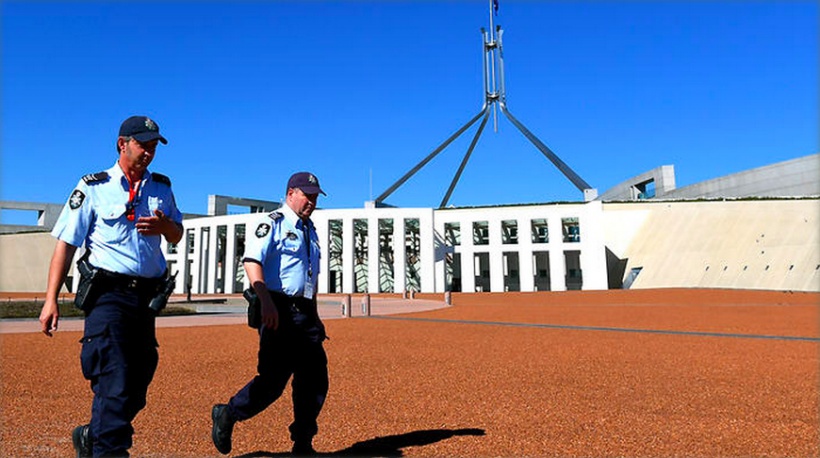Amid Threats, Australia Carries Out Terror Sweep
As the Islamic State began to name Australians as targets, Australia’s biggest-ever anti-terrorism operation was carried out last week with upwards of 800 police raiding more than a dozen homes across the suburbs of Sydney, the nation’s largest city. And in Melbourne, two anti-terror policemen were stabbed before killing a man who had allegedly threatened the Prime Minister.

In the pre-dawn hours of September 18, Australia’s biggest-ever anti-terrorism operation began with upwards of 800 police raiding more than a dozen homes across the suburbs of Sydney, the nation’s largest city. The action was sparked by apparent intelligence that an expatriate Australian member of the terrorist group Islamic State had urged local followers to “gruesomely execute” randomly chosen citizens by beheading.
And in Melbourne yesterday, two members of a counter-terrorism police unit were stabbed by a man who had reportedly made threats against the Prime Minister, Tony Abbott. The man, whose name was not released, was shot dead. The previous day, Abbott had warned that the balance between freedom and security in Australia "may have to shift" due to what he called the "darkening" security situation.
Among those arrested last week, Omarjan Azari, 22, a Sydney resident, was charged with conspiring to plan or prepare a terrorist act, which police alleged was intended “to shock, horrify and terrify the community.” He was refused bail.
According to reports, Azari had conspired with Afghan refugee Mohammed Baryalei, a nightclub bouncer and bit-part actor, now reputedly a “senior” member and recruiter for IS in Syria, who is wanted in Australia for terrorism offenses. Of the others arrested, one has been charged with firearm and ammunition offences.
In court on Thursday, Azari’s defense barrister said that the police case was based on a single phone call. But Prime Minister Tony Abbott told media that intelligence reports indicated leaders of IS were urging Australian supporters to carry out public beheadings.
"The exhortations, quite direct exhortations, were coming from an Australian who is apparently quite senior in ISIL, to networks of support back in Australia to conduct demonstration killings here in this country," he said. "This is not just suspicion, this is intent."
Australia’s media was quick to run with the Government and intelligence agencies’ scenario, with headlines such as “The Terror Within,” “Beheading Plot Smashed,” and “Terror Australis,” a reference to an Australian horror magazine. Further allegations followed, including that Parliament House in Canberra has been targeted for a terrorist attack, triggering unprecedented security measures.
With comparisons being made to the public murder of British soldier Lee Rigby by Islamic extremists in 2013, it has also been reported that some commanders of the Australian Defense Force have advised personnel not to wear uniforms to or from work or on public transport.
Australian Federal Police have also requested the Australian Government to expedite the issuing of control orders, which allow law agencies to place restrictions on people deemed to be a risk to public safety. Legislation to boost the powers of the Australian Security Intelligence Organization and to clamp down on Australians fighting overseas will go before the parliament this week.
Critics have suggested the alleged plot is a timely diversion for a conservative Government struggling with poor opinion polls and an overwhelmingly negative reaction to its latest budget.
It has also sparked a backlash of hate crimes and threats against the Muslim community and, in some cases, overreactions: a man was removed from a domestic flight this weekend after writing notes and doodles in his notebook satirizing the alleged terrorism threat – including the words “Terrorismadeup.”
Australia has not suffered a terrorist attack on its soil, though 88 of its citizens were among the 202 people killed in the Bali bombings in October 2002. But a number of anti-terrorist operations have been conducted within the nation, with a range of offenders sentenced to lengthy prison terms. One, Khaled Sharrouf, arrested among a group of jihadists amassing guns, ammunition and bomb-making equipment, served four years and has since come to prominence as an Australian recruit to IS, and recently photographed his seven-year-old son holding a severed head.

































































































